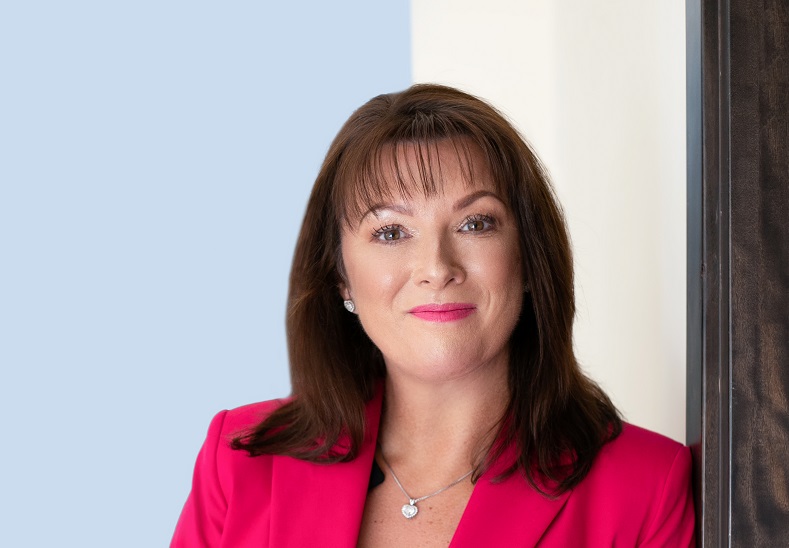As the professional body dedicated to boosting professional standards across the globe, the Chartered Insurance Institute is on a constant mission to foster and nurture close collaboration with corporate organisations and stakeholders. Regional director for the Middle East and CSA regions, Gaenor Jones (pictured), talks about the regional initiatives and strategies in place to accelerate professional development.
In its endeavours to remain relevant and buoyant the insurance sector has always thrived on facing and adapting to new challenges. This has undoubtedly brought about new approaches and ignited innovation, particularly evident in a post pandemic and digitally advancing world. It has also made the requirement for the sector’s professionals to be technically competent and consistently abreast of evolving market needs more crucial than ever before.
As the Middle East market matures there are encouraging signs from corporate organisations in the region that they are becoming increasingly mindful of the crucial role that internationally recognised qualifications attainment has on their employee’s career development and reputation.
The CII launched its International Professional Partner Firm’s initiative (IPPF) just under two years ago, its aim being to formally recognise those corporate organisations who support and invest in their staff, by encouraging them to be a member of a professional body, such as the CII and attain professional body/CII qualifications. Uptake of the IPPF initiative by corporates has been very encouraging, and comes from a diverse range of entities, including underwriters, re-insurance and insurance brokerages and wealth management firms.
The list of International Professional Partner firms now includes, Gargash, Lockton, City Marine, Chedid Re, Braxtone, Arma Underwriting, AHR Group, Fidelity and AES amongst others.
There is no doubt that corporates are waking up to the fact that the benefits for the business and the reputation of its employees for providing informed and competent advice far outweigh any considerations about potential absenteeism to allow for study work or exam taking.
The CII has long recognised this potential issue for employers and has worked hard on its digital offering to ensure a convenient and straightforward study and exam taking process. Via remote learning and invigilation, students who enrol on CII courses are able to fit their studies very easily around their day job, and in our feedback surveys they are always quick to praise the ease of combining both.
The importance for the sector of having an accessible talent pool of qualified, competent, technically knowledgeable staff to call on was highlighted in the aftermath of the UAE floods this year, where many corporates had to employ more advisors to meet the barrage of queries and claims and required the reassurance that new recruits had CII qualifications. The episode served to remind corporates that professional development was a collective sector issue, not just an individual company one, and that the once widely held argument that, “We will educate them, then they might leave” was no longer salient or relevant.
Securing continued collaboration and support from corporates means providing market-relevant courses, content and resources for employees and this remains a priority for the CII. Unsurprisingly, the introduction of courses and units that focus on emerging technology and the environmental agenda continue to remain popular with both employers and employees. These include, for example, the Introduction to Data Science & Analytics.
Developed in collaboration with the Southampton Data Science Academy, the course is an important first step in developing knowledge of data science and artificial intelligence (AI) , providing an overview of data tools and technologies to develop understanding of data analysis, data visualisation techniques, an ethical approach to AI and data science techniques for insurance.
Addressing the role of the environmental component within the insurance sector is covered in the Certificate of Climate Risk, where the aim of this single-unit qualification is to develop professional knowledge, understanding and skills relating to climate change, climate risk and sustainable finance, with a view to supporting customers, clients, colleagues, and communities with the transition to a sustainable, low-carbon world.
While the attainment of professional internationally recognised qualifications remains the backbone of professional development, continued professional development (CPD) relies on consistent learning and knowledge building. Membership of the CII provides education and insight on a wealth of key topics and issues, which we have strived to make easily accessible via our website, online resources, CPD platform, and events which are all free for members.
International Professional Partner Firms are encouraged to renew their CII IPPF membership every year, as are any individuals working in the sector as only current CII members are allowed to use the coveted CII designations, Cert CII, Dip CII, ACII and FCII. We continue to communicate to them how their feedback is highly valued in ensuring that we work in harmony, progressing together the common goal of raising professional standards across the region.
As the regional government regulators hint at mandating professional qualifications in the near future, this becomes even more crucial. Ultimately, robust and effective collaboration will future proof the Middle East’s insurance sector, guaranteeing a bright future for employers and their employees but more importantly for the end user and the consumer.





